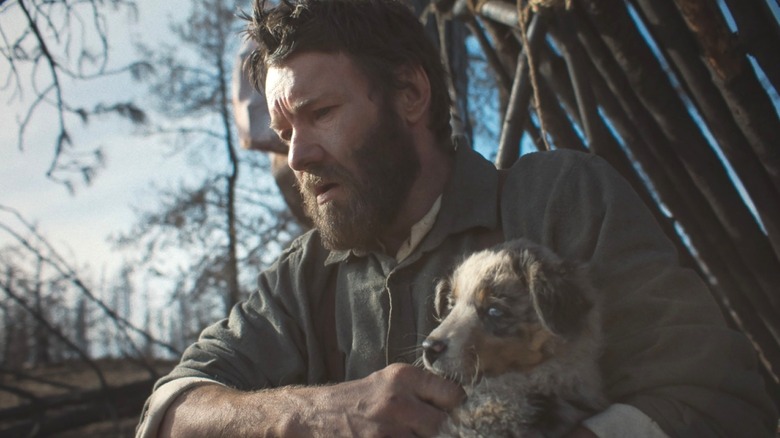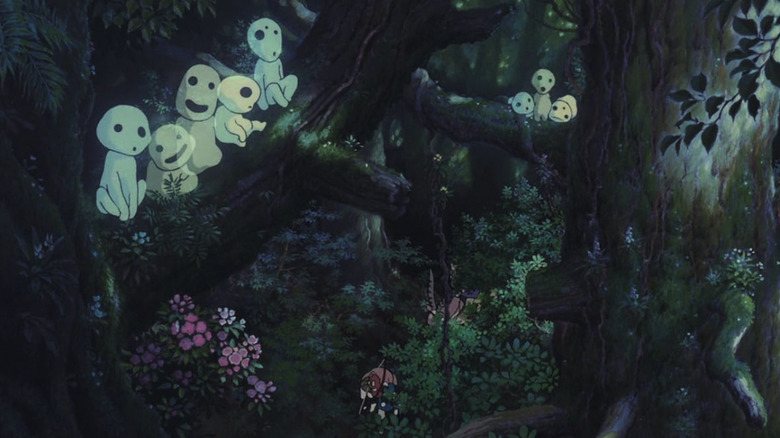The Surprising Studio Ghibli Film That Influenced Netflix's Train Dreams [Exclusive]
Netflix is about to release one of the best movies of 2025, a historical drama titled "Train Dreams" that comes from "Jockey" director Clint Bentley. Based on Denis Johnson's 2011 novella of the same name, the movie stars Joel Edgerton as Robert Grainier, a man working as a logger who helps build railroads across the U.S. in the early 20th century. Much like the incredibly moving "The Life of Chuck," the story follows a man who never achieved anything worthy of the history books, yet nevertheless had a life full of people who cared for him –– a life of wonder and connection and profundity.
As /Film's Chris Evangelista put it in his review of "Train Dreams," this is "a remarkable look at an unremarkable man's life," a soft and quiet poem of a narrative that's often heartbreaking and somber, but which finds beauty in quiet, simple moments. It's the kind of movie that sneaks up on you and tears your soul apart when you least expect it (even if it is also rather funny at times).
As dramatic and non-fantastical as this movie is, it was also influenced by a rather fantastical genre film. /Film's Ben Pearson spoke with "Train Dreams" director Clint Bentley about the film's cinematic influences, and after naming Tarkovsky (not so surprising), Bentley name-dropped a surprising fan-favorite Studio Ghibli film among them.
"'Princess Mononoke' was another [influence], the Miyazaki film, just in how it treats people and time and there's no good guy and bad guy," Bentley explained. "There's people doing good things and people doing bad things, but everyone's a human."
Train Dreams may not have giant wolves or spirits, but it does feel spiritual
"Princess Mononoke," one of the best movies Ghibli ever produced, is the culmination of ideas and themes that Japanese director Hayao Miyazaki had been exploring for decades. The film follows a young prince who finds himself in the middle of a conflict between the inhabitants of a human town and the gods of the nearby forest. Miyazaki gives a lot of nuance to every character, showing each side to have flaws but also self-justification for their actions. Even the villain of the movie ends up being a rather empathetic figure.
Though "Train Dreams" doesn't feature such a clear conflict, it nevertheless sees every character with equal empathy. The movie makes it clear that everyone is going through their own tragedies — that people are a part of our world one day, and can be gone the next.
Likewise, "Train Dreams" shares a sense of spirituality that's central to Miyazaki's film. Bentley elaborated that he took inspiration from the anime film's "spirituality of nature [...] where nature is alive and is its own character and its own force that is not just a resource we can take from, but is actually a nation living next to us."
"Train Dreams" spends significant screen time contemplating nature, especially how it changed in the early 20th century. Grainier spends his years traveling the U.S. doing tough manual labor, and we see the forests and vast landscapes that surround him, with Bentley imbuing them with an almost religious awe (especially when Grainier is looking out the window of one of the many trains he takes throughout the movie). It may not feature forest gods, but you can definitely see the Miyazaki influence in this film.
"Train Dreams" is streaming on Netflix now.

